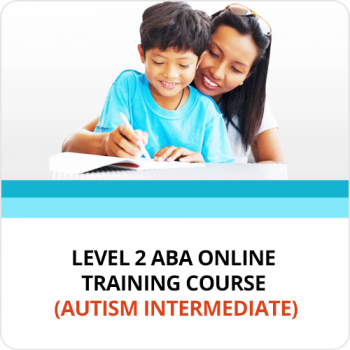Blog Categories
- ADHD
- Applied Behavior Analysis
- Autism Awareness
- Autism Service Providers
- Case Studies
- Dignosis
- Classroom Management
- Credentials
- Ethics
- Family Matters
- FAQs About LIVE Events
- Financial Planning
- Holiday Planning
- IEP's
- Panelists
- Private Equity in Autism & ABA Industry
- Psychopharmacology
- Sensory Processing Disorder
- Speech and Communication
- Subject Matter Experts
- Summer Planning
- Transition Planning
Why Would I want to be an RBT?
She has been practicing Behavior Analysis for over 10 years, where she started out as a behavior technician. She has experience working in family homes, schools, group homes, foster care, and facilities. She specializes in Natural Environment Training, maladaptive and aggressive behaviors- with children and adults whom have ASD, developmental delays, and/or mental health diagnoses. As an RBT Program Manager for Special Learning, she is responsible for overseeing and provide behavior analytical coaching to those seeking RBT training , clinical supervision, and RBT credentialing. She received her Bachelor’s in Psychology from the University of South Florida and her BCaBA training from Florida Institute and Technology.
Why Would I want to be an RBT?
What do you envision when you hear the questions: “what do you want to be when you grow-up” or “what are you going to do with your life?” Do you see yourself doing what you are doing now? Do you envision helping children with autism? Your answer may be more like my original answer. For example, I know when I was asked these questions 15 years ago or so, I would have told you I wanted to be a veterinarian. I thought I was going to perform extensive surgery on animals and provide care to aggressive-breed canines. I imagined I would travel to Asia and Africa and do research like that of Jane Goodall -but with tigers instead of gorillas. I would not have said I wanted to work in field of ABA. I was not even aware of a field called ABA. Never mind comprehending what is autism, a behavior analyst or a Registered Behavior Technician (RBT). But, that all changed when I took my first elective class about environmental modification and went onto working at an autism agency where I was a behavioral technician providing direct one-on-one ABA therapy with children with autism. The combination of these two events introduced me the field of ABA.
As a behavioral technician, I would teach the children language/communication, social skills, daily living/adaptive skills, pre-academic skills, and more. It was an amazing experience to be part of these children’s success stories as they became more independent and some even entered grade-school mainstreamed. Due to these experiences, I made the decision to change my career from my initial dreams of becoming a veterinarian to pursuing the field of ABA and later continued my education and became a BCaBA (Board Certified assistant Behavior Analyst). The benefits I have encountered during my ABA journey have been bound-less to include, financial freedom with continual growth, being my own boss and self-satisfaction in the fact that I am helping children with autism and/or other special needs. If you are like me, you will too embrace the benefits of being an RBT.
Financial Stability and Growth as an RBT?
A major concern for most, including myself, is financial stability. Being concerned that you cannot make rent/mortgage payment, fear of foreclosure or eviction, not having the ability to use a vehicle or community transportation to get to work, paying for doctor visits for yourself or children, or even planning a vacation are normal concerns in today’s economy. But as a an RBT, these concerns can drift into the back of your mind and you can live comfortably knowing you will have a job, and a job that pays well.
Recent data has suggested that an entry-level ABA practitioner (RBT) start at an average range of $12-$17 USD per hour, that’s an annual income in the range of $25,000-$35,000/ year. Since the adoption of the RBT credential in 2015, Payscale.com reports there are RBTs grossing up to $21.50/hr (that’s an annual income over $45,000/year), and some are averaging $31.63/hour with bonuses and/or overtime. In the US, the average job has an annual salary bump of less than 3.5%. As for an RBT, the annual salary is increasing up to a staggering 7%-10% annually. In simple terms, each year since the RBT became a credentialed position, there are RBTs making up to an extra $10,000/year.
This financial stability and growth does not seem to be going anywhere in the coming years due to many insurances mandating that behavioral therapy be performed by an RBT under the supervision of a BC(a)BA. Along with insurance mandates, a child with autism is diagnosed daily. The number of people with autism is averaging around 1 in 68 people (2015). And US data (2015) shows that nearly 12% of the population is with a disability. There is so much help and work to be done, and not enough RBTs!
Being your own Boss as an RBT!
One thing that most do not like about going to “work” is that you have to be followed by your boss, your boss makes your schedule, you have to “work” on holidays and lose precious time with your family and friends, and if you are not performing your job duties correctly, you have a high chance of being unemployed. When I became a behavioral technician, all of a sudden these pit-falls for having a “job” disappeared. In fact, due to the field of ABA, it only makes sense that these pit-falls virtually do not exist in ABA.
For example, as an RBT you may have a boss, but it’s not like a traditional boss. This person is usually a behavior analyst who created the treatment plan and trains you (as the RBT) on how to implement the programs with your client. Then, you will get a visit from the supervisor at a minimum of 2x a month to monitor how you are doing with implementing the programs with that specific client. Some supervisors may not even physically be on-site with you, they may do virtual supervision. The plus side to supervision is that it is in accordance with BACB standards and utilizes ABA principles to help shape the RBT into being the best RBT he or she can be which in turn, will have a direct positive impact on the client. Many times in my experience, the supervisor would actually be able to show me how to do a program with a client by doing it themselves and modeling it for me. How many of you can say your boss/supervisor would actually do the work they asked you to do?
Along with providing ongoing supervision, it is extremely rare for a behavior analyst supervisor to use punishment (i.e. being scolded, yelled at, feel inferior to your superior etc). Instead, they will use positive reinforcement and provide the RBT with the necessary skills to be successful. The supervisor will be courteous and even welcome an RBTs feedback. In all my years as an employee at any job, I never felt like my opinion counted, but in the field of ABA not only is it accepted – it is highly encouraged.
With a humanistic approach to supervision, your schedule is very “human” too. Many times as an RBT you may work with a child or children in a center, school, and/or family home. Since, you are providing ABA services within these settings, many times you won’t have to work the grave-yard shift or holidays. Many RBTs have the ability to work as an independent contractor or as an employee. The benefit for working as an RBT, is that you have the ability to schedule the clients according to your and the client’s ability. So let’s say your son has an upcoming football championship and you know you want to support him. All it takes (for the most part) is a little communication with your supervisor and the family with whom you are working and viola you are off work that day and can go celebrate your son’s accomplishments!
Internal Rewards and Self-Satisfaction as an RBT!
One of my favorite parts of being a behavior practitioner is the gratification I receive for helping others. I honestly can’t think of day that I did not want to go to work since changing my career path to ABA. when working directly one-on-one with a child in it’s self is amazing, but this “amazing” feeling multiples significantly when you are apart of this child’s life and he/she is learning to talk, make friends, and “do things like that of his/her neuro-typical peers”..
Many children with Autism and other disabilities have a difficult time communicating simple things like what they want, how they are feeling, or just even saying “hi”. When working as an RBT you will learn techniques called manding, echoics, shaping etc. and will use these evidenced-based protocols to teach language to children who were thought to “never be able to speak”.
I remember the first time I was teaching a 7 year-old to call-out for his mom by saying “mama”. This child had never called for his mother and his mother was under the impression that her son just did not know who she was or even her name. After a few trials working directly with the boy, we began to work on Natural Environmental Training (NET). NET is basically using new taught skills in the “real world” and in turn the child/student learns the importance of using his/her new skill to get what he/she wants and needs at home, school, church, community, store etc.
About 3 hours later, the 7 year old boy walked up to his mother and independently (meaning did it all by himself without any help or assistance) said “mama”. This little boy’s mother was so elated and shocked, she began to cry with tears of joy. To be apart of that intimate moment between a mother and child was a humbling experience and a honor in knowing that as the RBT, I helped the child in communication and he and his mother had a magical moment that all parents and children should experience.
The famous, Jane Goodall once said,!”Every individual matters. Every individual has a role to play. Every individual makes a difference.” In my opinion, my ABA journey has me doing exactly this. I went from exploring the idea of different career path, to achieving financial freedom with continual growth, being my own boss and self-satisfaction all while being an ABA Practitioner. All this would have not been possible if it were not for those 2 events (environmental modification class and and entry-level position as a behavior technician) over 10 years ago. Ask yourself now . . .”What do I want to do with my life?”
RECOMMENDED PRODUCTS
Level 2 ABA Online Training Course (Autism Intermediate)
Build Your Own CE Library – Gianna Apicella (20 CEs)




